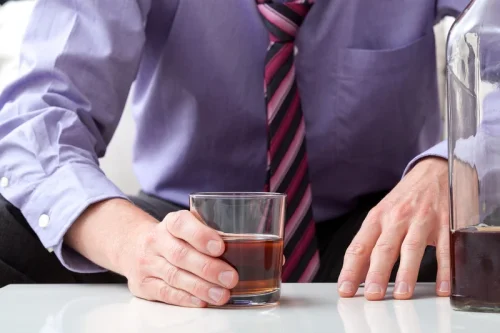What Are the 6 Stages of Alcohol Recovery?

This may not feel comfortable at first, but that discomfort is normal and helpful. This stage is also when you emotionally and mentally accept that you have a problem and begin to https://ecosoberhouse.com/ see yourself in new and positive ways. But this isn’t a good time for sweeping changes, like a career switch. This stage of recovery begins the moment you decide to stop drinking.
Abstinence stage

Depending on the severity of your addiction, the following withdrawal symptoms can manifest when you quit alcohol. Find support for yourself and other family members in a rehab family program. Go to an Al-Anon or Alateen meeting or set up an appointment with a mental health professional.

Stage 2: Seeking Help and Treatment
- The important thing is to take that first step towards change and commit to the recovery process.
- As human beings, we are constantly undergoing changes, so our goals and alcohol recovery timeline will too.
- Others do well on their own making use of available community resources.
- Science indicates that triggers such as people, places, things, moods, and drug exposure play significant roles.
Although it may be tempting for addicts to quit cold turkey, research has shown that those who spend more time in the preparation stage of recovery are more likely to have sustainable success. If you’re struggling with alcoholism, our alcohol addiction treatment center can help. Our caring and supportive staff can support you through all six stages of recovery, from alcohol detox all the way to freedom from alcohol addiction. This time period, roughly 2-3 months into the alcohol recovery timeline, is pivotal according to clinicians.
What makes alcohol withdrawal challenging?
This plan should outline specific steps, timelines, and potential obstacles. In this stage, individuals have moved from thinking about change to actually planning for it. They’ve tipped the scales in favor of change and are now taking small steps towards their goal. It’s an exciting time, filled with hope and anticipation, but it can also be daunting.
How to Find Drug and Alcohol Addiction Treatment Near Me

Chronic drinkers are more liable to contract diseases like pneumonia and tuberculosis than moderate drinkers. Drinking a lot on a single occasion slows your body’s ability to ward off infections–even up to 24 hours after getting drunk. Blacking out from drinking too much is a warning sign of this stage, along with lying about drinking, drinking excessively, and thinking obsessively about drinking. And if today is as far ahead as you’re ready to look, that’s okay too. You can visit the Monument Community to hear from others about their experiences, and attend therapist-moderated support groups to check in with yourself and others.
- At the preparation stage, alcoholics have decided to make a change, and they are planning to take meaningful steps toward recovery in the near future.
- A robust support system plays a pivotal role in an individual’s journey towards recovery.
- We provide evidence-based medical care and emotional support through all the stages of detox from alcohol.
- After completing the inpatient portion, you can continue on the road to recovery with our intensive outpatient program.
For people at low risk of complications, an office visit to your primary care provider, along with at-home monitoring and virtual office visits, may suffice. People at high risk of complications should enter a short-term in-patient detox program. For people who experience hallucinations as part of alcohol withdrawal, these may begin in the 12- to 24-hour time frame. There is no exact timeline for alcohol withdrawal, and individual factors, such as the level of dependence on alcohol, will influence it. When that person cuts out alcohol, there is a period when their brain hasn’t yet received the message and still overproduces the stimulating chemicals. With alcohol out of the equation, though, these chemicals cause withdrawal symptoms.
What Happens When You Stop Drinking Alcohol?
This is about how long it takes the body and mind to recover from the effects of alcohol, and for new habits and lifestyle changes to solidify. Keep in mind that everyone’s experience with alcohol use disorder is unique and valid, and we encourage you to discuss your personal circumstances and goals with your Care Team for individualized advice. During this stage, individuals may also explore different treatment options, such as outpatient programs, inpatient rehabilitation, or support groups. It is crucial to find a treatment approach that aligns with the individual’s needs and preferences. Seeking professional advice and researching available resources can help individuals make informed decisions about their recovery journey.

Stage 3: Maintaining Abstinence

If you are thinking about quitting drinking, talk to your healthcare provider. Medical supervision, behavioral health treatment, and mutual-aid groups can help you through alcohol withdrawal and stay stopped. Behavioral treatment programs are helpful for people who want to quit drinking. These programs involve working with a team of mental health professionals in a group and individual setting. This article discusses alcohol withdrawal, its symptoms, and potential complications.
Choosing the Right Treatment Program
This helpline is answered by Legacy Healing Center, an addiction treatment provider with treatment facilities in California, Florida, Ohio, and New Jersey. Central to the TTM is the concept of motivational interviewing (MI), a clinical tool seamlessly integrating with the Stages of Change Model. By fostering a non-confrontational and empathetic stages of alcoholic recovery therapeutic environment, MI aligns with the stages individuals navigate, promoting intrinsic motivation for change. The collaborative nature of MI respects the diverse progression of individuals through the stages, acknowledging their readiness and ambivalence. “Signs of alcohol withdrawal syndrome.” Medical News Today, July 5, 2018.



